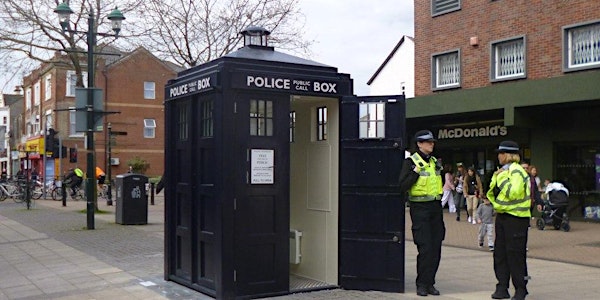Twitter: @drmaryfraser
Despite massive loss of manpower from agriculture in Britain from around 1850 with mass migration into the towns and cities during the industrial revolution, by
1914 agriculture was still the largest single employer. During the last 2 years of the First World War (1917-1918) this made farm workers a prime target to conscript into the army under the first Military Service Act, 1916 [5 & 6 GEO. 5. CH. 104] and subsequent Military Service Acts.
Agriculture became nationalised from the beginning of the Lloyd George Premiership (December 1916) and developed policies to replace fit men of military age (18-41 years of age until mid-1918) by men outside these ages and less physically fit, and women. But in industries with strong trade unions such as engineering and munitions which feared industrial conscription and strike breaking, they fiercely contested replacement, setting up barriers to the deployment of workers from outside the industry.
However,
agriculture was largely non-unionized, so fell mainly outside these hostilities allowing government to impose massive supplies of manpower into agriculture, first from the Home Army, to increase home food production, seen by agricultural workers as government-assisted blacklegs. The lack of unionisation in agriculture weakened farm workers’ ability to bargain for wage rises in this traditionally low wage industry,
until the establishment of the Agricultural Wages Board in 1918. Until
after March 1918 unskilled farm workers mainly received lower wages than
substitute soldiers, who had their rates of pay determined by the War Office. Additionally, at a time when very few men wanted to go to war, many replacements on farms were exempted from army service at the front, while
agricultural workers were still being combed out into the army.
But farmers, who employed agricultural workers, received government-guaranteed prices for their produce to encourage increased production, so were the main financial beneficiaries of government controlled agriculture.
However,
no reports of strike action by farm workers was found, so that government had
little opposition to deploying replacements, many of whom provided an inferior service to farmers compared with their experienced workers.
But policemen, also released into agriculture from March 1917 were welcomed by farmers due to their dormant agricultural skills from previous employment and their knowledge of the local area. Their role as first responders in a national emergency continues today.
Further reading
Fraser, M. (2021) 'Police as Ploughmen': Temporary release to help farmers in the food crisis of First World War Britain. https://doi.org/10.1080/14780038.2021.1958443
Dewey, P. E. (1979) Government provision of farm labour in England and Wales, 1914-1918. The Agricultural History Review. XXVIII 110-121.
Dewey, P.E. (1989) British Agriculture in the First World War. Routledge. Chapter Sixteen pp. 229-238.
Collins,
E.J.T. (2000) Introduction and Part I. Agriculture in the industrial state. Chapters 1 and 2 pp. 1-223. In The Agrarian History of England and Wales
Ed. Joan Thirsk. VII (Part 1) 1850-1914. Cambridge University Press.
The National Archives TNA CAB 23/3/32 184 p. 5. Minutes of the War Cabinet for 13th July 1917.
.jpg)
